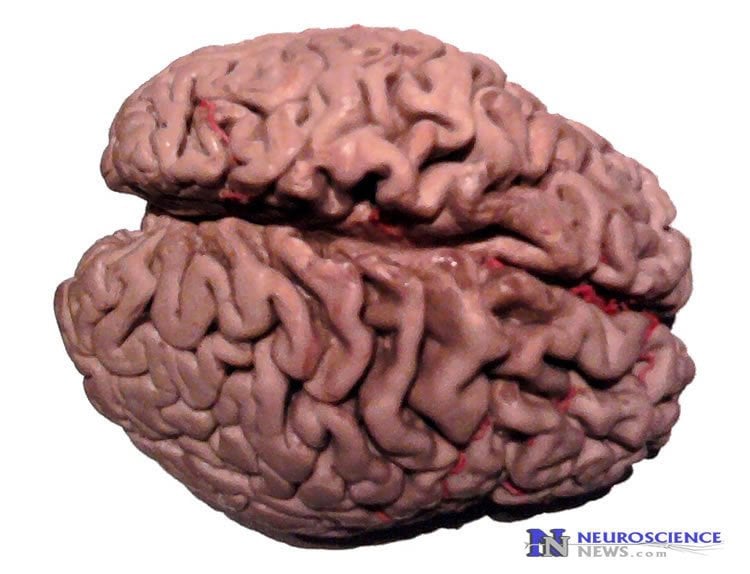The drop in body temperature associated with aging could aggravate the main manifestations of Alzheimer’s, suggests a study published in the latest issue of Neurobiology of Aging by Université Laval researchers. Although the phenomenon was demonstrated using transgenic mice, researchers believe that the findings are convincing enough to warrant further investigation in humans.
“We know that the incidence of Alzheimer’s is low before age 65, but doubles every 5 to 6 years afterward,” explains the study’s lead author Frédéric Calon, professor at the Université Laval Faculty of Pharmacy and researcher at Centre de recherche du CHU de Québec-Université Laval. “We also know that metabolism and body temperature decrease as people get older. We therefore tested the hypothesis that the changes in the body’s thermoregulation that occur with age amplify the main manifestations of Alzheimer’s and that a vicious circle can even set in because the disease expresses itself in certain areas of the brain involved in temperature regulation.”
To test this hypothesis, the researchers used a type of transgenic mice that express the main manifestations of Alzheimer’s disease as they age: They produce beta-amyloid, which leads to the formation of senile plaque in the brain; they are affected by a pathology that renders neurons non-functional; and they lose synaptic proteins. In these mice, memory problems begin to arise at the age of 6 months.
By comparing these transgenic mice with normal ones, researchers first established that the transgenic mice were less able to effectively maintain their body temperature as they aged. The difference reached almost 1° Celsius by the age of 12 months. The researchers also observed that the manifestations of Alzheimer’s were markedly more pronounced in transgenic mice when they were exposed to low temperatures: “The abnormal tau proteins responsible for neuron deterioration increase more in transgenic mice than normal mice, and the loss of synaptic proteins is more pronounced,” explains Professor Calon.

Conversely, researchers observed that exposure to a high ambient temperature mitigated some manifestations of Alzheimer’s disease. After one week in a 28°C environment, the transgenic mice’s body temperature had increased by 1°C, beta-amyloid production had dropped substantially, and memory test results were comparable to those of normal mice.
“Our findings suggest that it is worth exploring the treatment of thermoregulation among seniors suffering from Alzheimer’s,” says Professor Calon. “If our conclusions are confirmed, it would be a relatively easy therapeutic option to implement because body temperature can be increased through physical activity, diet, drugs, or simply by increasing the ambient temperature.”
Source: Jean-François Huppé – Université Laval
Image Credit: The image is in the public domain.
Original Research: Abstract for “Impaired thermoregulation and beneficial effects of thermoneutrality in the 3xTg-AD model of Alzheimer’s disease (AD)” by Milene Vandal, White J. Phillip, Marine Tournissac, Cyntia Tremblay, Isabelle St-Amour, Janelle Drouin-Ouellet, Melanie Bousquet, Marie-Thérèse Traversy, Emmanuel Planel, Andre Marette, and Frederic Calon in Neurobiology of Aging. Published online March 29 2016 doi:10.1016/j.neurobiolaging.2016.03.024
Abstract
Impaired thermoregulation and beneficial effects of thermoneutrality in the 3xTg-AD model of Alzheimer’s disease (AD)
The sharp rise in the incidence of Alzheimer’s disease (AD) at an old age coincides with a reduction in energy metabolism and core body temperature. We found that the 3xTg-AD mouse model of AD spontaneously develops a lower basal body temperature and is more vulnerable to a cold environment compared to age-matched controls. This was despite higher non-shivering thermogenic activity, as evidenced by brown adipose tissue (BAT) norepinephrine content and uncoupling protein 1 (UCP1) expression. A 24-h exposure to cold (4°C) aggravated key neuropathological markers of AD such as: tau phosphorylation, soluble Aβ concentrations and synaptic protein loss in the cortex of 3xTg-AD mice. Strikingly, raising the body temperature of aged 3xTg-AD mice via exposure to a thermoneutral environment improved memory function and reduced amyloid and synaptic pathologies within a week. Our results suggest the presence of a vicious cycle between impaired thermoregulation and AD-like neuropathology and it is proposed that correcting thermoregulatory deficits might be therapeutic in AD.
“Impaired thermoregulation and beneficial effects of thermoneutrality in the 3xTg-AD model of Alzheimer’s disease (AD)” by Milene Vandal, White J. Phillip, Marine Tournissac, Cyntia Tremblay, Isabelle St-Amour, Janelle Drouin-Ouellet, Melanie Bousquet, Marie-Thérèse Traversy, Emmanuel Planel, Andre Marette, and Frederic Calon in Neurobiology of Aging. Published online March 29 2016 doi:10.1016/j.neurobiolaging.2016.03.024







